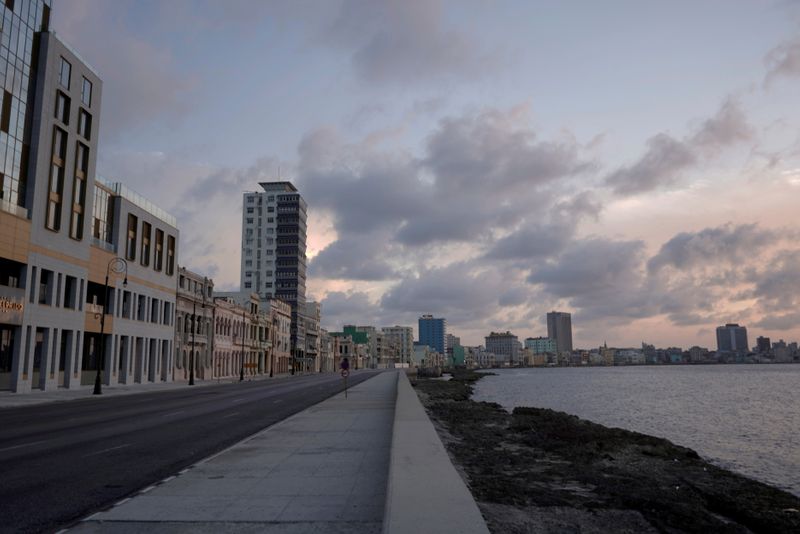HAVANA (Reuters) – In a major reform of the state-dominated economy, the Cuban government will allow small private businesses to operate in most fields, eliminating its limited list of activities, state-run media reported on Saturday.
The measure, coming as the Caribbean island seeks to recover from an economic slump, will expand the field from 127 activities to more than 2,000, Labor Minister Marta Elena Feito Cabrera was quoted as saying. She spoke at a council of ministers meeting that approved the policy.
She said there would be 124 exceptions, but the media reports provided no details.
Reform-minded Cuban economists have long called for the role of small business to be expanded to help jump-start the economy and to create jobs.
The economy has stagnated for years and contracted by 11% last year, due to a combination of the coronavirus pandemic that devastated tourism and tough U.S. sanctions. Cubans have been dealing with a scarcity of basic goods and endless lines to obtain them.
The crisis has forced a series of long promised but stalled reforms, from devaluation of the peso and reorganization of the monetary system to some deregulation of state businesses and foreign investment.
“The self-employed are not going to have it easy in this new beginning due to the complex environment in which they will operate, with few dollars and inputs in the economy,” said Pavel Vidal, a former Cuban central bank economist who teaches at Colombia’s Pontificia Universidad Javeriana Cali.
“But with the ingenuity of the Cuban and the sophistication of the parallel market, they will be able to take off little by little,” he added.
President Miguel Diaz-Canel said last year the country faced an international and local crisis and would implement a series of reforms to increase exports, cut imports and stimulate domestic demand.
He said the measures would include “the improvement of the non-state sector, with immediate priority in the expansion of self-employment and removal of obstacles.”
The non-state sector – not including agriculture with its hundreds of thousands of small farms, thousands of cooperative and day laborers – is composed mainly of small private businesses and cooperatives; their employees, artisans, taxi drivers and tradesmen.
The labor minister said there were more than 600,000 people in the sector, some 13% of the labor force. They are all designated as self-employed and an estimated 40% depend mainly on the tourism industry or work in public transportation.
Over the last six months the government has also moved to grant small businesses access to wholesale markets and to import and export, though only through state companies.
(Reporting by Marc Frank; Editing by Frances Kerry and Andrea Ricci)






















